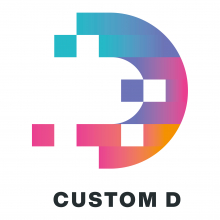
There are 28 Companies in New Zealand
that provide NodeJS Development Services!
New Zealand has registered one of the biggest IT growth rates in the world between 2015-2019, increasing its digital capabilities by 64% based on data provided by “iStart”. The growth continues in 2025, with a revenue in the market of IT Services of $4,12 billion and a CAGR for 2025-2030 of 2.88%.
Discover Top IT Companies in New Zealand specialized in NodeJS and other related services. Find the best IT service providers for your projects.
Node Js is a JavaScript runtime environment that allows developers to run JavaScript code on the server-side. Unlike traditional server-side technologies like PHP or Ruby, which are typically used for handling server tasks, Node.js enables developers to use JavaScript for both client-side and server-side development.
Handpicked companies • No obligation to hire • 100% risk-free
Featured Companies in New Zealand
This month, the following NodeJS Development companies managed to provide an outstanding service and support. It's worth taking a look.

Auckland, New Zealand Head office in: United States
Access the Top 1% Tech Talent | 1500+ In-House Developers | Trusted by Fortune 500 Companies

Auckland, New Zealand Head office in: India
Our Main Focus Is Creating Metaverse & AI Projects Seamlessly Combining Artificial Intelligence And Virtual Reality. Also, We Have Expert IT Services.

Dev Centre House Ireland Verified Company
Auckland, New Zealand Head office in: Ireland
We are a boutique software development company housing 100+ expert developers. Specialising in web, mobile, blockchain, and AI software development.
Explore Top NodeJS Development Companies in New Zealand

Fire Bee Techno Services Verified Company
Auckland, New Zealand Head office in: India
Fire Bee Techno Services is an ISO-Certified Blockchain and AI Development Company In india and across the world with 13+ years of experience.

DigiSmiths.com Verified Company
Auckland, New Zealand Head office in: India
Award-winning digital agency delivering next-gen web, CRM, and AI automation solutions that streamline operations and drive business growth.
Services:

Acquaint Softtech Pvt Ltd Verified Company
Auckland, New Zealand Head office in: India
Official Laravel Partner helping you build web & mobile apps with top remote developers and efficient IT staff augmentation.

Psychoactive Studios Verified Company
Auckland, New Zealand Head office in: New Zealand
International award-winning agency building beautiful, interactive web experiences. We work with brands who want to push the boundaries of the web.
We're an integrated agency focused on partnerships and delivering real world results
Services:

Dev Technosys Verified Company
Auckland, New Zealand Head office in: United States
Dev Technosys has earned the reputation of an award-winning mobile app development company.

Visir AI Limited Verified Company
Christchurch, New Zealand Head office in: New Zealand
Visir AI is a New Zealand founded cloud and machine learning company specialising in computer vision systems supporting health and safety.
Web & mobile app development based in NZ/Australia
"Empowering Your Digital Potential" by giving best possible solution to strengthen your business processes.

Rotorua, New Zealand Head office in: Australia
The Silent Partner Powering Your Business Technology
Services:
Digital Product Studio. Tailored Digital Solutions
Our Mission Is To Help and Deliver Remarkable Results For Our Clients. We Put Customers and Results At The Heart Of Everything We Do
Services:

Silicon Valley Infomedia Pvt Ltd. Verified Company
Auckland, New Zealand Head office in: India
Outsource Web Development India | PHP Development Company | AngularJS Developer | MEAN Stack | Full Stack | iPhone App | Android App | Educational ERP
Wonderlab: a place to problem solve, invent and create exceptional communication and persuasion in any medium through the language of design.
Services:
Web Design for Growth-Focused Businesses
Services:
Intelligent IT NZ is an IT company in NZ, specializing in custom web development, web apps, and innovative software solutions for clients worldwide.
AV Consulting, based in St.Heliers Auckland, is the best option for startups & small businesses to advertise their business online.
Services:
We specialise in cloud architecture, mobile & web development. With a global team, we help businesses thrive in the digital age.
Nodero build stunning web and mobile applications for enteprise clients. Nodero provide business analysis, UX design, testing and other services relat...
Performance marketing agency that's all about your return on investment. We build digital strategies that outperform your competition.
Services:
We partner with innovative businesses to attract, engage, convert, and retain customers with our integrated digital marketing and eCommerce solutions.
- 1
- 2
Filter NodeJS Development Companies in New Zealand by Cities
Find the right tech company near you or from a specific city. Some of the best companies might be located in smaller cities.
Find more NodeJS Development companies around the world
TechBehemoths is the world's most advanced and user-friendly platform to match IT Companies with real clients without hustle.
ICT Industry in the New Zealand: General Profile and Insights
New Zealand registered one of the biggest IT growth rates in the world between 2015-2019, increasing its digital capabilities by 64% based on data provided by “iStart”. Based on the latest data provided by the New Zealand government, in 2019 there were around 21,000 IT companies in the country including multinational corporations, foreign investors, and local startups that enroll in the IT industry more than 120,000 professionals. The growth continues in 2025, with a revenue in the market of IT Services of $4,12 billion and a CAGR for 2025-2030 of 2.88%.
According to PayScale, the average salary in the IT sector is almost $4,000 USD/Mo - making IT professionals one of the best-paid workers in the country. All these results were reached with the common effort of the government and SMEs that created and developed an attractive business environment, especially in the digital sector.
Why Work With New Zealand IT Companies
New Zealand's ICT companies have earned an international reputation for being flexible, resilient, adaptable, and entrepreneurial. Many high-profile projects have come out of the country’s ICT industry, thus improving the local IT industry's reputation on the global market and made out of New Zealand's web and software companies a trusted IT hub.
What to Pay Attention to When Working With New Zealand IT Companies
On the other hand, New Zealand IT companies face challenges with enrolling a new workforce. Since the demand for digital products and services is increasing from both local and international clients, there are not enough professionals to cover the requests. This leads to limited capacities of local IT companies in providing the needed services.
Based on a report from 2019 released by International Data Corporation, 3 out of 10 projects of New Zealand IT companies are postponed or hung in the queue, which can sometimes be a frustrating experience for clients. In 2025, this problem will persist with some improvements, like increased investment, reinforcement of talent, adoption of faster project management, and many others.
However, New Zealand prefers rather attract a workforce directly from other countries by offering facilities to professionals and convincing them to relocate to the country, which may help companies to catch up and increase their working capacity.
At the same time, timezone differences are another possible challenge. International companies need to be aware that we work in a different time zone, so we may need to take morning or evening calls.
How Reliable Are New Zealand IT Companies
New Zealand companies implement the highest standards not only in Technology but also in business. Having as a reference Australian and US companies, the local web and software agencies are well known for being flexible, resilient, adaptable, and entrepreneurial.
Also, the level of project management in New Zealand IT companies is high enough to compete with regional and international corporations.
How Does the New Zealand IT Industry Relate to the Neighboring Countries?
On the regional level, the New Zealand IT industry competes with the Australian one, mostly. Both industries face the same challenges and have almost the same opportunities, but rank differently in the global index.
While both are confronting a shortage of tech professionals, even with a well-developed IT infrastructure, Australia chooses to solve the problem with outsourcing, while New Zealand companies rely on government policies that facilitate professionals from specific countries to relocate and find a job in the IT industry at one of the 21K+ companies present on the local market.
Comparing the data from IDC research, New Zealand will probably be the winner with such an approach in the long run, while Australia has to increase its attractiveness to remain competitive.
How is the Business Environment in New Zealand?
In 2024, New Zealand's business environment was characterized by its ease of doing business, as it ranked #8 out of the top 10 economies in the Business Environment Rankings from Economist Intelligence, highlighting its efficient regulatory framework, protection of property rights, and strong contract enforcement.
Additionally, New Zealand maintained a strong credit rating of AA from Standard & Poor's, reflecting its stable and well-managed economy. The country's low corruption levels, as indicated by its ranking of 4th in the Transparency International Corruption Perceptions Index, further contributed to its favorable business environment in 2024.
According to Andrew Hillstead from Psychoactive Studios, New Zealanders are known for their innovation, initiative, and professionalism, especially in the ICT industry. Though, because of the low population, finding specialists can be difficult. Some of the world's best web design agencies are based in New Zealand.
Wellington and Auckland - Among the Best Cities for IT Businesses in New Zealand
Andrew also states that Wellington has the highest concentration of creative and tech businesses in New Zealand. It is New Zealand's home of art, design, and IT. Wellington is small and mighty, while Auckland is much larger and may offer greater opportunities for some companies.
Both Wellington and Auckland have a strong talent pool in the IT sector. New Zealand has a robust education system that produces highly skilled graduates in computer science, engineering, and related disciplines. The presence of reputable universities and technical institutes in both cities ensures a steady supply of qualified professionals for IT businesses. Furthermore, the cities' multicultural environments attract diverse talent, fostering innovation and creativity.
This article was created together with prominent figures and professionals coming from reputable IT companies in New Zealand. Special credits: Andrew Hillstead.
What is NodeJS and what are its benefits for your projects?
Node Js is a JavaScript runtime environment that allows developers to run JavaScript code on the server-side. Unlike traditional server-side technologies like PHP or Ruby, which are typically used for handling server tasks, Node.js enables developers to use JavaScript for both client-side and server-side development. Below we’ll dive deeper into the types of projects built with it, and how companies can leverage it for their projects:
Node.js is built on the V8 JavaScript engine from Google, making it incredibly fast and efficient. It uses an event-driven, non-blocking I/O model, which makes it ideal for building scalable and real-time applications. Node.js is particularly well-suited for projects that require high concurrency, such as web applications, APIs, chat applications, streaming services, and more. It has a large and active community, which has led to a rich ecosystem of libraries and packages available via npm (Node Package Manager), simplifying development tasks.
As for the type of projects that can be built using Node.js, we can name the following:
- Web Applications: Many web applications are built using Node.js, often using web frameworks like Express.js. These applications can range from small personal websites to large-scale, enterprise-level platforms.
- APIs (Application Programming Interfaces): Node.js is commonly used to create RESTful APIs that allow different services or applications to communicate with each other. This is essential for building services that provide data to mobile apps, websites, and other clients.
- Real-time Applications: Node.js is favored for real-time applications, such as chat applications, online gaming, and collaborative tools. The event-driven architecture of Node.js is well-suited for handling multiple concurrent connections.
- Streaming Services: Media streaming platforms and services that deliver audio and video content use Node.js to efficiently manage and serve media files to users.
- IoT (Internet of Things): Node.js is used in IoT projects to handle data collection from sensors and devices, process that data, and communicate with cloud services.
- Serverless Functions: Node.js is a popular choice for building serverless functions or AWS Lambda functions due to its lightweight and quick startup times.
Node.js is a versatile technology that can be effectively utilized in both smaller and larger projects, but its suitability hinges on several key factors.
For smaller projects, Node.js offers distinct advantages. Its event-driven, non-blocking I/O model allows developers to rapidly prototype and develop applications. This makes it an excellent choice for creating functional prototypes, minimum viable products (MVPs), or simple web tools swiftly.
Node.js's efficiency in handling I/O operations can lead to responsive user experiences, which is valuable for small-scale applications like personal websites, blogs, or straightforward web tools. Moreover, Node.js itself is lightweight, making it suitable for projects with minimal hardware or resource requirements. It doesn't impose significant overhead, making it a cost-effective option.
Node.js is also well-suited for serving as a backend for Single-Page Applications (SPAs), handling API requests, and serving static files efficiently. Its ability to use JavaScript both on the server and client sides can reduce development costs by enabling code reuse and a single development skill set.
For larger projects, Node.js remains a compelling choice for various reasons. Its ability to handle a large number of concurrent connections positions it favorably for projects with high traffic and user loads. It's designed to scale efficiently, allowing it to distribute workloads across multiple servers or containers, making it scalable and robust.
In larger applications with complex functionality, Node.js can be employed to build microservices that communicate efficiently with each other. This modular approach enhances maintainability and facilitates development on a larger scale.
Node.js's event-driven nature also makes it an ideal candidate for larger projects requiring real-time features. It excels in managing multiple simultaneous connections, making it suitable for applications such as messaging platforms, online gaming, or collaborative tools.
Additionally, Node.js continues to offer development speed advantages regardless of project size, which can be particularly valuable in meeting tight project deadlines.
Furthermore, for larger projects with JavaScript as the primary language on both the frontend and backend, Node.js facilitates streamlined development processes, code sharing, and collaboration among teams working on different parts of the application.












